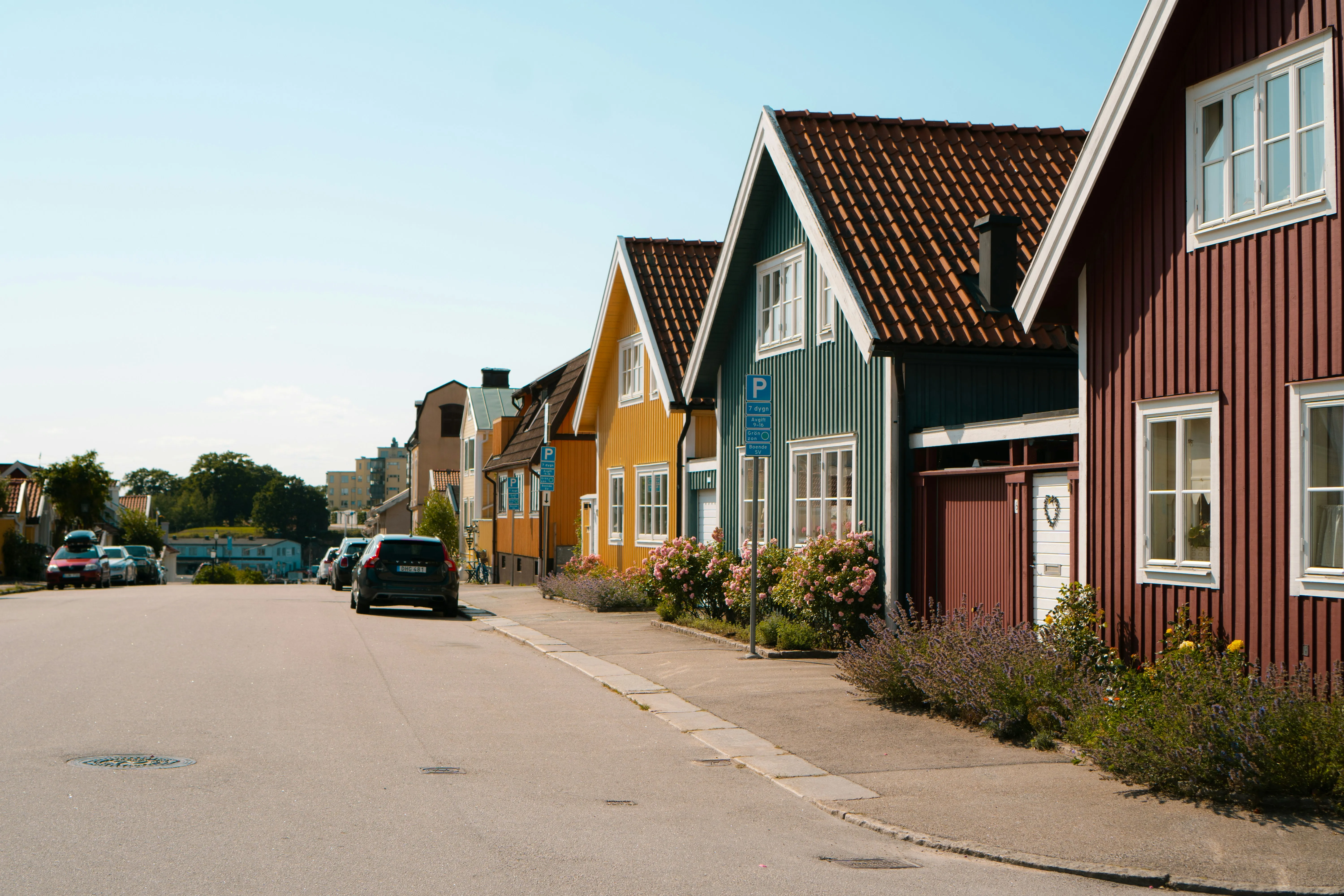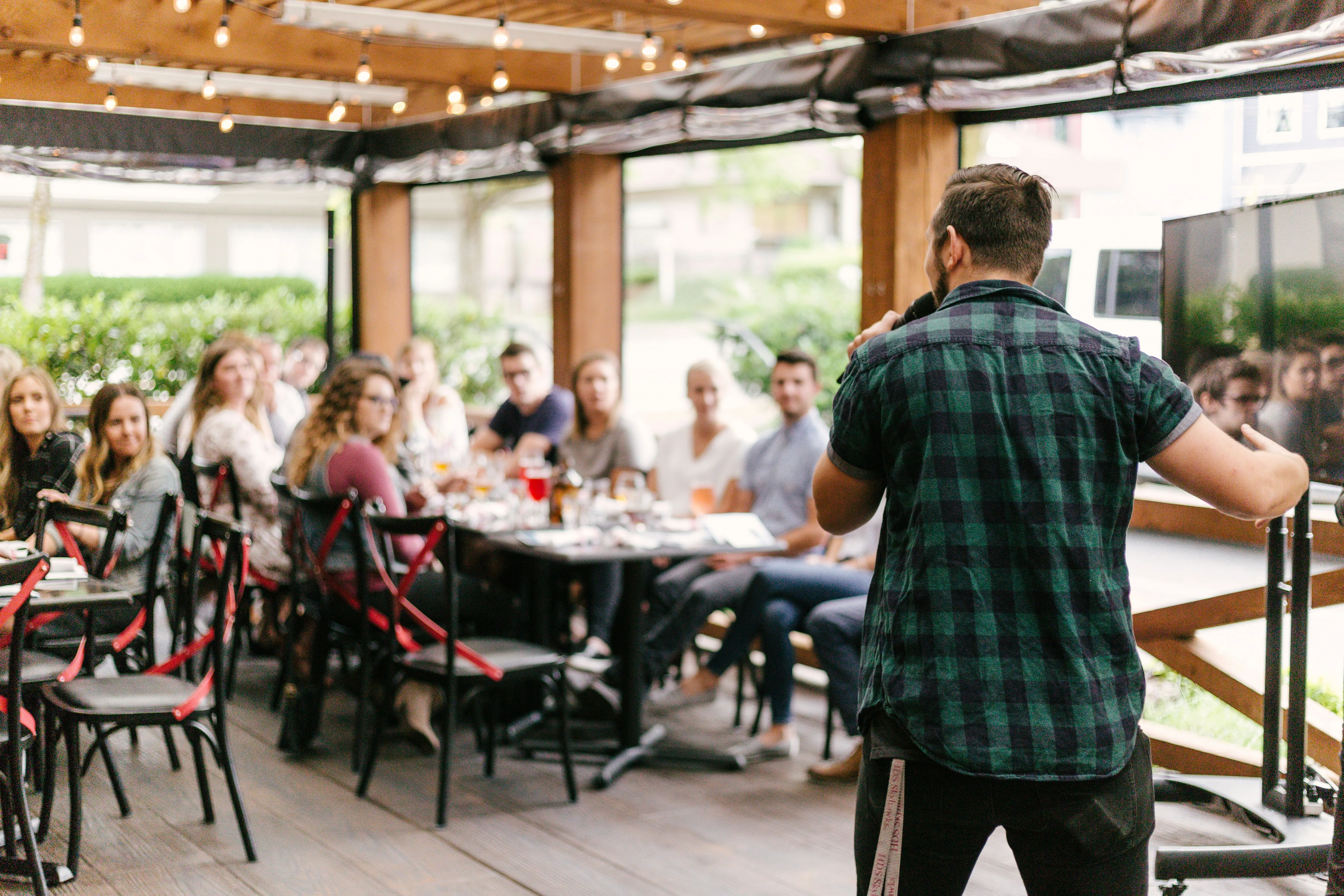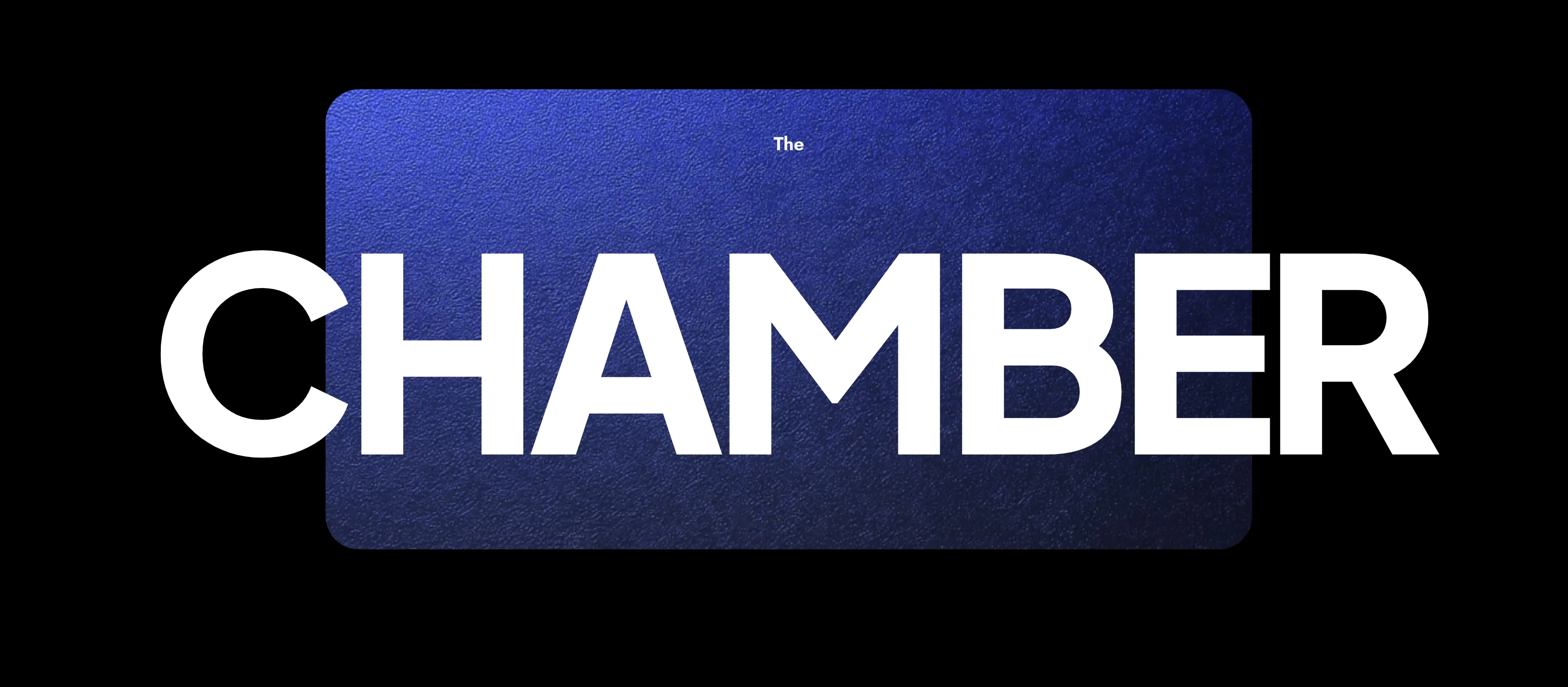The Block: Danosch Zahedi’s web3 chamber
'This will be the future epicenter for all things virtual assets,' he says of the Dubai-based venture

Selling to neighbors at eight, driving P&G products across Sweden in his twenties, then missing the early Bitcoin wave – Danosch Zahedi’s journey didn’t point to web3 leadership. Yet in Dubai, he became the face of one of the region’s strongest crypto communities.
"We built this really tight knit group of people in real life. We focused a lot on in-person events, and that's why it stayed and remained throughout that bear market and the challenges what we had during that time," Zahedi told The Crypto Radio.
The unlikely crypto convert
Zahedi’s path to cryptocurrency leadership began far from blockchain. "I was born and raised in Sweden to Iranian parents. I grew up in Sweden, and I got into business at an early age by selling stuff when I was eight, nine years old, to neighbors," he said.
He was already testing ideas in his teens. "I started my first business when I was 17, and tried a few different ventures. As with most entrepreneurial ventures, the first few usually fail, until you get enough experience to do it successfully."
That drive carried him through traditional corporate roles at major companies like Procter & Gamble, where he began "as a sales rep driving around to stores selling products." Later came a trading company he still runs today.
His first brush with Bitcoin arrived just as the world economy was reeling. "I graduated in 2009 and that is actually when Bitcoin was launched, right in January," he aid. The 2008 financial crisis had pushed him toward alternatives. "It didn't make sense that you can save the economy by printing more money."
Like many, though, he missed his early chance. When Bitcoin hit $100 in 2013, he debated selling his gold holdings to buy in. "I told my ex back then, 'Look, I am thinking about selling all of my gold and putting everything into Bitcoin. She was like, 'No, maybe you should rethink it. It sounds really dodgy.'"
Today he applies those lessons as CEO of The Block, a Dubai-based chamber for virtual assets working with regulators and entrepreneurs alike.

Danosch Zahedi began his career driving across Sweden for Procter & Gamble, learning sales on the road before entering crypto. Photo: Unsplash / Patrick Federi
An accidental community
By 2021, Zahedi was in Dubai as NFTs exploded. "For the first time ever, you could put art and culture and music and videos and IP on chain," he said. "Revolutionizing the game."
The start of what became Arts DAO was almost random. "We had this first meetup in September with 10 people. We thought that was every single person in the NFT space in Dubai." Two weeks later there were 30. A month later, 100. "And then it just snowballed."
That early community grew into Arts DAO, which today calls itself “your home in the web3 space” — a cultural hub in Dubai where people belong, connect, and grow. Its flagship event, Arts DAO Fest, is now the MENA region’s biggest digital culture festival, celebrating web3, digital art, AI, and gaming.
Arts DAO also attracted global names. "We had guys like Steve Aoki, the DJ in our WhatsApp group. We had Gary V organizing the event with us when he came to Dubai," Zahedi said. The DAO has since worked with brands like Etihad, Mercedes, Solana, and Ledger, and launched one of the region’s first NFT collector DAOs.
“The difference between us and 95 or 99% of all the other NFT projects was that, with us, we already had a community before we launched our project,” Zahedi said.
The power of believers
Community, he believes, is the only way brands survive. "You need to have a group of believers. We are living in such a diverse world today where there's millions of products, millions of brands, millions of companies, and the only way that you can actually compete is by having fans or having like minded people that love what you're doing."
This approach shaped Arts DAO’s growth far beyond casual meetups. "We organized two big festivals, had more than 50 events, went to Colombia on an extremely cool trip that became a documentary on Amazon," he said. Those shared experiences created loyalty that no market downturn could erase.
He points to mainstream culture as proof: "That is why guys like Jake Paul can launch a really average drink, Prime, and sell out within seconds and have people queuing. That is the power of community."

What started as a small NFT meetup in Dubai quickly grew into a movement that drew global names and brands. Photo: Unsplash / Priscilla du Preez
Building The Block
Today, Zahedi is channeling that community-building into The Block, "an International Chamber for virtual assets. Think of it as a chamber of commerce, but we are focusing solely and entirely on virtual assets."
The Block works with regulators, helps companies raise funding, and guides them into new markets. "If you want to get licensed in different jurisdictions and get regulated, The Block can help you with that. If you're looking to raise funds, The Block can help you with that."
It also has a physical footprint. "In October, we're launching our own physical spaces. So we're launching a big space – Experience Center in One Central in Dubai World Trade Center. It's going to be a really, really flagship premium venue. I haven't seen anything like it in Dubai."

The Block, described by Danosch Zahedi as an international chamber for virtual assets, is shaping Dubai’s role in global web3. Photo: The Block
Making tokenization simple
For Zahedi, breaking down complex ideas is as important as building physical hubs. Asked to explain tokenization to a beginner, he offered a simple analogy: "Imagine you want to sell your house, and the title lead is a piece of paper, and now you take the piece of paper and you cut it up into 100 pieces, and you give 100 different people each one share of that property."
That model, he argued, "democratizes investment through tokenization," giving people access to assets they could never afford outright. And it doesn’t stop with real estate. "We walk around with passports today, which is crazy. We live in such a digital world, and we have to take care of this book that we shouldn't lose."
From art to equities to identity, he sees tokenization as the next step in making ownership more accessible and efficient.
What’s next for web3
Zahedi sees AI merging with blockchain to reshape opportunities. "What’s interesting is now with AI, it’s leveling the playing field. Soon the coding language will actually be English."
For him, web3 will not stay siloed. "I think that the future of web3 is going to be a future where it's completely intertwined with everything we do. And not just crypto as a currency, but web3 as blockchain technology. We’re going to see it in everything from hospitals to real estate to infrastructure."
His ambition matches that vision. "In the next five years, we will have become a global, international player in the virtual asset space. We are one of the leading enterprises when it comes to tokenization."
For someone who stumbled into the crypto world almost by accident, Zahedi has built something remarkable – not just businesses, but communities that endure. His story suggests the most valuable asset in a digital economy may still be human connection.



